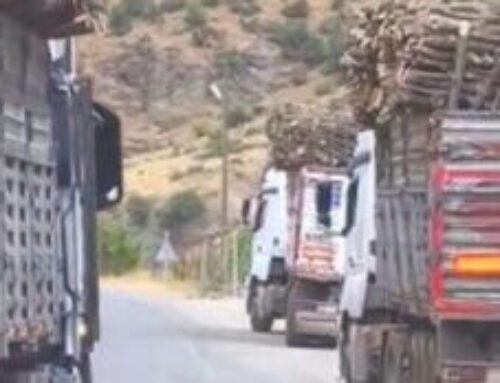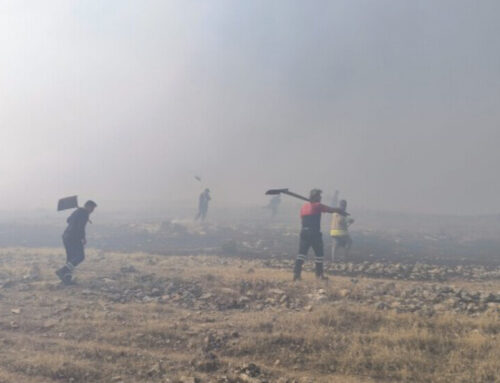Kurds built radical alternatives to dominant systems: Ashish Kothari
Kurds built radical alternatives to dominant systems: Ashish Kothari
- Date: September 17, 2022

- Date: September 17, 2022
Kurds built radical alternatives to dominant systems: Ashish Kothari
An environmentalist Indian author argues that the Kurdish freedom movement laid the foundations of an inspirational and alternative revolution with a holistic transformation within difficult, long-term struggles.
Ashish Kothari, an environmentalist author and editor of more than 30 books in India, explains that the Kurdish freedom movement laid the foundations of an inspirational revolution in the making, as an alternative to the dominant systems with ecological, social, democratic, economic and cultural change, in his comprehensive article entitled, The Flower of Transformation Blooms in Kurdistan.
Vikalp Sangam, or the Confluence of Alternatives, is an initiative that aims to create a platform to explore alternatives to ecological self-destruction and economic inequality in India.
This initiative offers a framework that explains the foundations of holistic transformations towards radical alternatives to dominant systems. This framework of radical alternatives is symbolised by the name ‘Flower of Transformation’.
Co-founder of one of the four non-governmental organisations that initiated the Vikalp Sangam, Kothari describes the holistic transformation of the Kurdish freedom movement within the Flower of Transformation framework in the article published on the website of the Academy of Democratic Modernity, a recently set up organisation in Europe, that aims to build a social alternative to capitalist modernity through education and connection with global democratic forces.
In the holistic transformation processes created by radical alternative organisations, interconnected and overlapping key elements and spheres form the five petals of the Flower of Transformation. These five petals include ecological integrity and resilience, social well-being and justice, direct and delegated democracy, economic democracy, and cultural diversity and knowledge democracy.
Kothari argues that each of these spheres can be illustrated by grounded initiatives in Kurdistan, which he describes as “one of the least reported and understood war zones in the world, as also one of the least known and appreciated initiatives for just, sustainable, equitable living”.
“The full blooming of the Flower of Transformation is going to involve difficult, long-term struggles. But what the Kurdish society is trying to achieve can be called a ‘nowtopia’ in the making, and many more are visible on the horizon around the world, a veritable Pluriverse of practices and worldviews,” says Kothari, pointing out that the movements like this provide hope for a saner and more just world.
Analysing the Kurdish freedom movement, the Indian author suggests that educational camps on women’s freedom, ecological living, and mobilising communities to practice ideals in the midst of severe historical and social difficulties and conflicts sound like a fantasy movie; adding, “except it is very real, very grounded, and happening right now.”








Leave A Comment